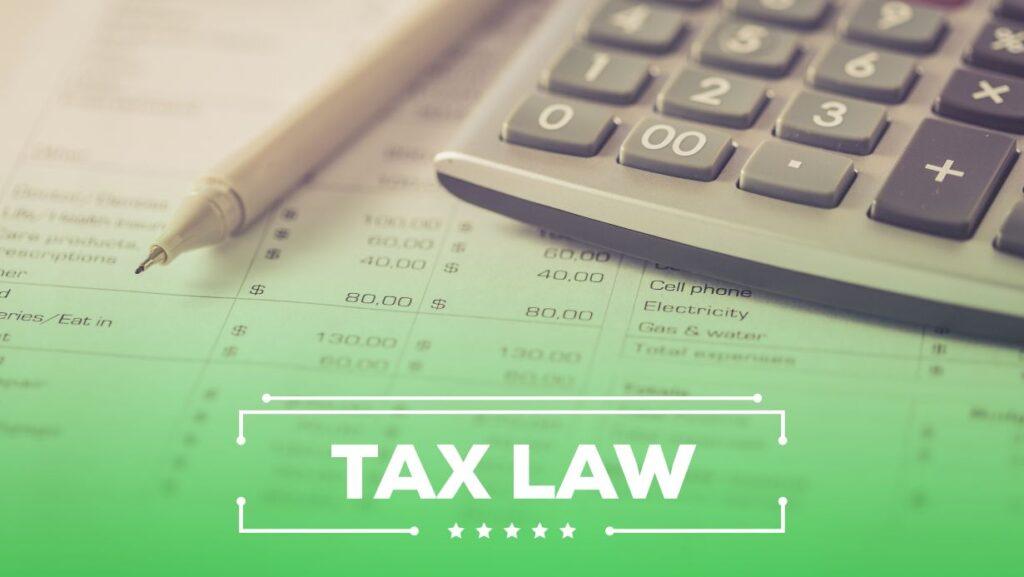Becoming a tax lawyer in New York is a journey that requires dedication, education, and a deep understanding of the complex world of taxation. Tax lawyers play a crucial role in advising clients on matters related to tax laws, regulations, and strategies to navigate the intricacies of the tax system while ensuring compliance. This article will guide you through the path to becoming a tax lawyer in New York, including who a tax lawyer is, the roles you can take on, potential earnings, and the Step-By-Step Process for Becoming a Tax Lawyer in New York that can pave the way for your success.
Who is a Tax Lawyer?
- A tax lawyer is a legal professional who specializes in tax law and provides expert guidance to individuals, businesses, and organizations on tax-related matters. These matters can range from routine tax planning and compliance to complex issues such as mergers and acquisitions, international taxation, and estate planning.
- A tax lawyer serves as a knowledgeable advisor, helping clients navigate the ever-changing landscape of tax regulations and laws while minimizing tax liabilities and ensuring adherence to legal requirements.
The Roles of a Tax Lawyer
Tax lawyers wear many hats in their profession. They can work in various settings, including law firms, corporations, government agencies, and even as independent consultants. Some common roles a tax lawyer can take on include:
- Tax Advisor: Tax lawyers provide valuable guidance to clients on tax planning, helping them make informed decisions about their finances and investments while minimizing tax liabilities.
- Tax Litigator: When disputes arise between individuals, businesses, or government agencies over tax matters, tax litigators step in to represent their client’s interests in court.
- Corporate Tax Lawyer: Corporate tax lawyers work closely with businesses to ensure compliance with tax laws, handle mergers and acquisitions, and provide strategic advice on structuring transactions to maximize tax benefits.
- Estate Planning Attorney: Tax lawyers specializing in estate planning help individuals create comprehensive plans for the distribution of assets upon their passing, considering tax implications and legal requirements.
Earnings Potential
The average salary of a tax lawyer in New York can range from approximately $100,000 to $200,000 or more per year, depending on factors such as experience, specialization, firm size, and location within the state.
- Experience and Expertise: Entry-level tax lawyers often begin with competitive starting salaries. As they accumulate years of experience and hone their expertise in the field, their earning potential can increase significantly.
- Firm or Organization Size and Reputation: The size and reputation of the law firm or organization a tax lawyer is affiliated with can play a substantial role in determining earnings. Prestigious law firms with a strong presence in New York often offer higher compensation packages, especially for partners and senior associates.
- Geographic Location: New York’s unique position as a financial hub has an impact on earning potential. The cost of living in New York City, for example, is notably higher than in many other cities across the United States. Consequently, law firms and organizations in New York may offer higher salaries to account for the increased cost of living.
- Specialization: Tax lawyers who specialize in high-demand areas, such as international taxation, mergers and acquisitions, or corporate restructuring, can often command premium compensation due to the complexity and specialized knowledge required in these fields. Niche areas of tax law that are experiencing rapid change, such as cryptocurrency taxation, can create lucrative opportunities for tax lawyers with relevant expertise.
Step-By-Step Process for Becoming a Tax Lawyer in New York
To embark on the journey of becoming a tax lawyer in New York, a solid educational foundation is essential.
1: Obtain a Bachelor’s Degree: Start by earning a bachelor’s degree in a related field such as business, accounting, finance, or economics. While this isn’t a strict requirement, it can provide a strong foundation for understanding financial concepts and tax principles.
2: Attend Law School: Pursue a Juris Doctor (J.D.) degree from an accredited law school. Law schools in New York offer various programs and specializations, including tax law.
3: Focus on Taxation: During law school, take elective courses focused on tax law. These courses will provide you with a comprehensive understanding of tax regulations, laws, and strategies.
4: Gain Practical Experience: Seek internships, clerkships, or summer associate positions at law firms. Practical experience will give you insights into real-world tax-related cases and issues.
5: Pass the New York State Bar Exam: After completing law school, you need to pass the New York State Bar Examination to become a licensed attorney in the state.
6: Gain Experience in Tax Law: Begin your legal career by working in law firms, government agencies, or corporate legal departments that handle tax-related matters. This experience will help you develop practical skills and deepen your understanding of tax law.
7: Consider an LL.M. in Taxation (Optional): Some tax lawyers choose to pursue a Master of Laws (LL.M.) degree in taxation to further specialize and deepen their expertise. While not required, an LL.M. can enhance your career prospects in tax law.
8: Consider Certification: Although not mandatory, you may choose to pursue certification as a specialist in tax law through organizations like the New York State Bar Association.
Becoming a tax lawyer in New York is a rewarding journey for those passionate about law, finance, and helping clients navigate the intricacies of the tax system. By understanding who a tax lawyer is, exploring the various roles, understanding the potential earnings, and pursuing essential educational courses, you can pave the way toward a successful and fulfilling career as a tax lawyer in the vibrant legal landscape of New York.






